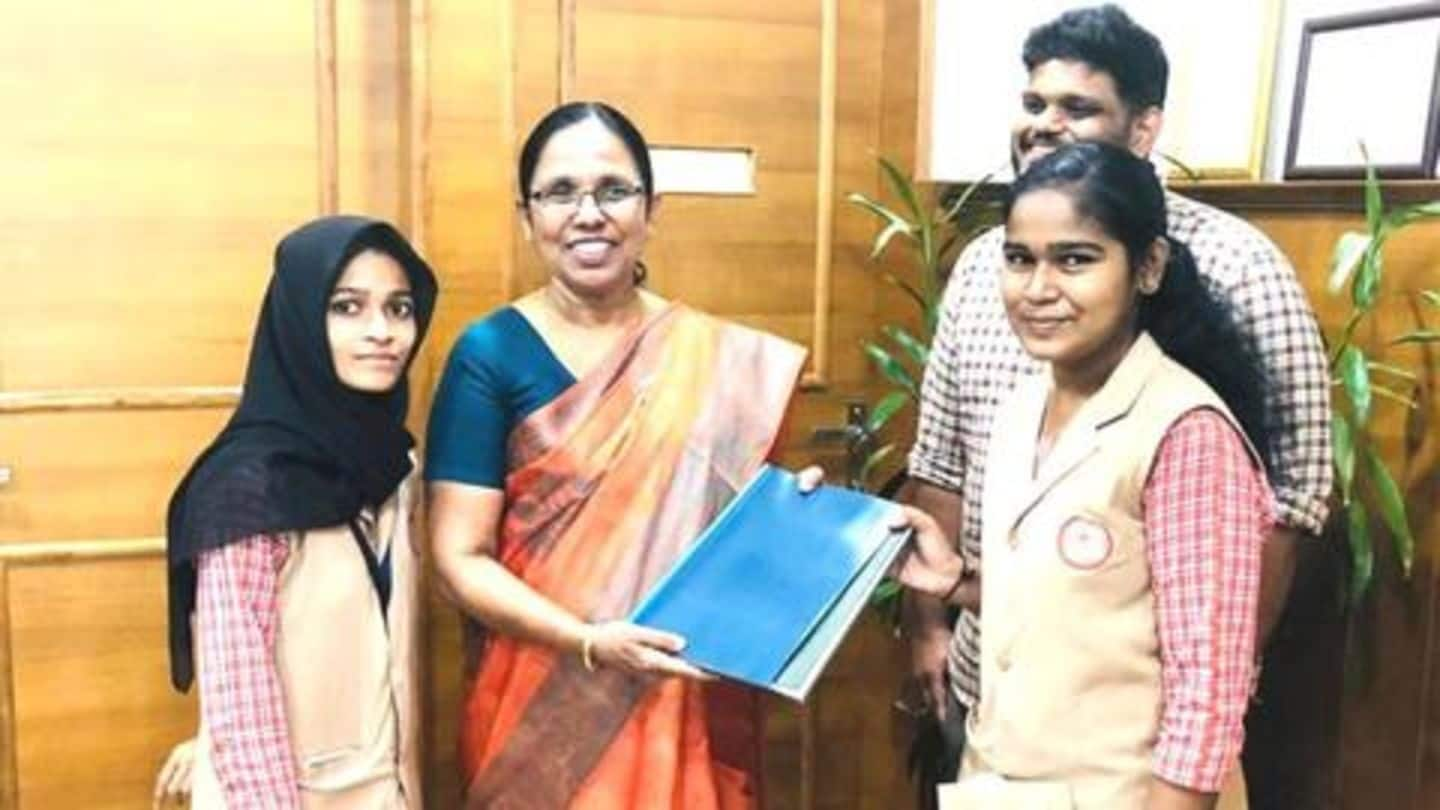
Kerala: Student-teacher team creates affordable sanitary-pads from world's worst water-weed
What's the story
A student-teacher team from AKMHS School in Kerala's Kottoor has created low-cost sanitary napkins from water hyacinth, also called the world's worst water weed. Three Class-11 students and their biology teacher developed and tested the "Suraksha Pad" in just eight months. These sanitary napkins are currently priced at Rs. 3/piece; but the price could be reduced further, say the makers. Here are more details.
Innovative Solution
One solution to two huge problems
The sanitary pads made from water hyacinth are a brainchild of AKMHS School's Class-11 students E Aswathy, PV Henna Sumi, and S Sreejesh Warrier and their biology teacher-cum-mentor KS Sarath. These innovative sanitary pads, which have been winning accolades across India, not only address the issue of menstrual hygiene to some extent but also reduce water hyacinth infestation which is a huge problem.
Issues
Infestation of water hyacinth leads to a lot of issues
The infestation of water hyacinth, which multiplies rapidly, causes various problems; it forms a dense layer on the surface of rivers, lakes, and ponds. It affects marine transportation, hampers fishing, leads to clogging up of canals and freshwater rivers, and disrupts irrigation/water supply. Kerala's Agriculture Minister even proposed a project to seek public help to find innovative ways to tackle the water hyacinth issue.
Idea
Thought of making a product to control water-hyacinth growth: Sarath
"Given how much of a problem the infestation of water hyacinth creates, we thought of using it to make a product and help control its rapid growth," Sarath said, speaking to TBI. "We initially looked at products like bags and handicrafts, but these are available..., we started thinking on different lines. Then we struck on the idea to make sanitary napkins," he said.
Process
How are these water hyacinth Suraksha Pads manufactured?
In the manufacturing of Suraksha Pads, the first step involves cutting and steam-sterilizing water hyacinth stalks for 30 minutes. These stalks are ground into powder and dried for about 4-5 days. This powder is mixed with cotton to make the pad's absorbent layer; beeswax is used for sealing the barrier layer. In the next and final step, the pad is UV-sterilized for 30 minutes.
Information
These sanitary pads are 12 times more absorbent: Sarath
According to the team, it will take some time to launch their sanitary pads commercially; these are priced at Rs. 3/pad currently. The price could be reduced further depending on manufacturing volumes. These pads are 12 times more absorbent than regular sanitary napkins, claimed Sarath.
Manufacturing, Testing
Sanitary pads tested in the school's labs and in colleges
"The testing [of sanitary napkins] was conducted primarily within our own school labs and those of colleges as well. We are now working towards getting the proper certification," said Sarath. "Even the manufacturing was done outside...we had no machines to make the napkins... had to rely on other units," he added. However, the team now plans to buy machines to start their manufacturing unit.
Details
The team also applied for a patent for their product
The student-teacher team's project was also selected as part of Kerala Government's Kudumbashree Startup Village Entrepreneurship Program. "This is a three-year project and will begin from June 2019. We have already tied up with women groups in and around the area who will work with us and also earn a livelihood...," said Sarath. The team had applied for a patent for their product too.